Exploring Jordan From a Local Woman’s Perspective
Jordan is at the forefront of the Middle East in women-centered tourism and businesses. Cassandra Brooklyn shares her personal experience exploring and leading tours here.
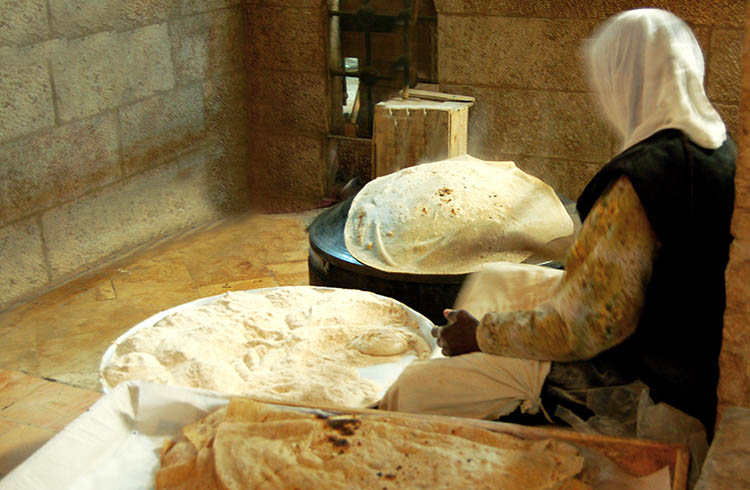 Photo © Getty Images / Johanna Mifsud Photography
Photo © Getty Images / Johanna Mifsud Photography
- Woman-run enterprises in Jordan
- Home visits and traditional meals
- Women tour leaders and guides
- Cultural experiences in North Jordan
- Cultural experiences in Central Jordan and Amman
- Trip Notes
- Listen to the World Nomads Travel Podcast - Jordan
During my first backpacking trip to Jordan in 2015, it was immediately apparent that the country was extraordinarily beautiful, intensely diverse, and very safe for solo female travelers. At that point, however, nearly all of the tour leaders, guides, and business owners I met across the country were men.
Fast-forward to 2019, when Jordan is both figuratively and financially supporting women’s cooperatives and businesses across the country. As a solo woman traveler turned tour operator, I now lead group trips to Jordan and am seeing more and more women guides in the country, eager to explain Jordan’s rich history and tradition through their own eyes and experiences.
Woman-run enterprises in Jordan
In recent years, the Jordan Tourism Board has invested heavily to promote sustainable, locally-owned businesses that create lasting change in their communities. Their Meaningful Travel Map of Jordan highlights 12 social enterprises offering hands-on cultural experiences that benefit both people and the planet. Many provide employment opportunities for women in the male-dominated tourism industry, and some also offer professional training and pathways to promotion.
Not only do these women-led enterprises provide financial freedom to their female employees and to the families and communities that rely on them, they also give female travelers in Jordan a unique opportunity to engage directly with these women and participate in age-old traditions and cultural practices.
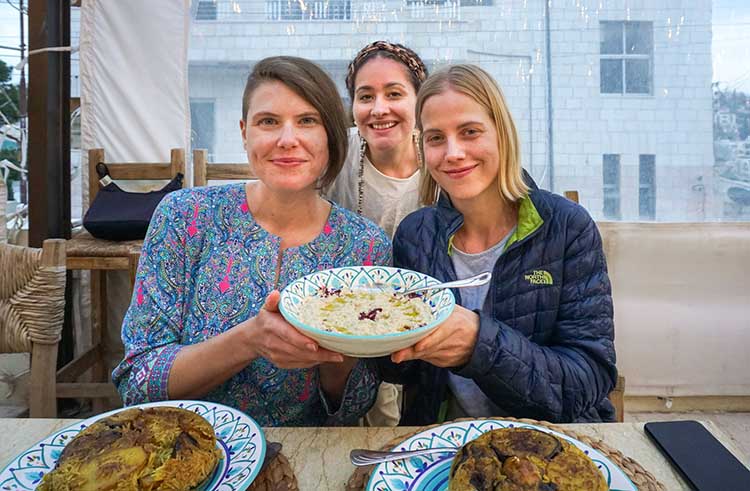
Home visits and traditional Jordanian meals
A professional travel planner or tour operator can help design your itinerary to work more unique, off-the-beaten-path experiences into your trip. They can also arrange for you to join local families for a traditional Jordanian meal in their home, a rare cultural experience that benefits both the traveler and the family, who may rely on these visits for extra income.
One of the highlights of my most recent trip to Jordan was visiting a family in the northern city of Ajloun. Meisun and her husband, Mohammad, welcomed us to their dinner table for a home-cooked lunch. When, during a tour of her garden, she heard I love cauliflower, she went inside to quickly add it to the menu, even though an enormous banquet had already been prepared.
Women tour leaders and guides in Jordan
Joining a woman-led group tour, or one that incorporates many local women’s voices, is the best way to gain insight into Jordanian gender dynamics and experience Jordan through the eyes of its women.
Tour operators like myself have noticed increased interest in women-led trips to Jordan in recent years, and we’re striving (and sometimes scrambling) to meet the demand. More women guides are being trained, but the number of women in the tourism industry is still very small, and the number leading tours is even smaller. It’s still sometimes necessary to hire men as tour leaders on the ground.
Aside from offering a woman’s perspective, having a woman tour leader can help avoid uncomfortable situations. During a recent trip I led in Jordan, a guest got her period the day we arrived in the desert. We had just checked into a Bedouin camp where every single employee was a man (this is normal in desert camps). After several awkward conversations with modest Bedouin staff and guides, I was able to secure some pads, but it took another day to find tampons, just in time for our trip to the Dead Sea. Having to rely on men in such cases can be uncomfortable for all parties involved.
If it’s important to you to be on a trip led by a woman, confirm who your tour leader will be before booking the trip. Not only will this ensure you’ll get the experience you’re looking for, you’ll also be encouraging the tour operator to hire and train more women guides.
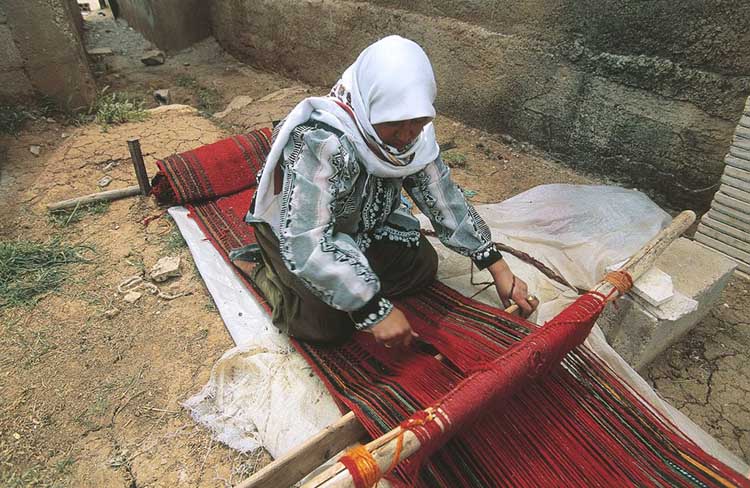
Cultural experiences in North Jordan
The most popular travel destinations in northern Jordan are the ancient Roman ruins of Jerash and the nearby former crusader castle in Ajloun. Right next to Ajloun Castle is Summaga Café, a relaxed restaurant that provides full-time employment for women and sources organic ingredients from female-led cooperative farms in the region.
Nearby Beit Khairat Souf is a cultural and heritage home where local women serve home-cooked food and sell natural food products such as jams, pickles, healing herbs, olive oil, and molasses. Side note – Jordan has some of the best olive oil in the world, so ask the women for suggestions on which to take home as souvenirs.
Cultural experiences in Central Jordan and Amman
In the capital city of Amman, travelers should check out Beit Setti, a cooking and dining experience led by two sisters dedicated to passing on their grandmother’s traditional recipes and cooking techniques. I was impressed by how professionally run the cooking classes here are. While some of the female-run enterprises are small scale or are still transitioning to working with tourists, Beit Setti is a well-organized machine, providing recipes, accommodating vegan diets, and sending follow-up emails once you return to your home country.
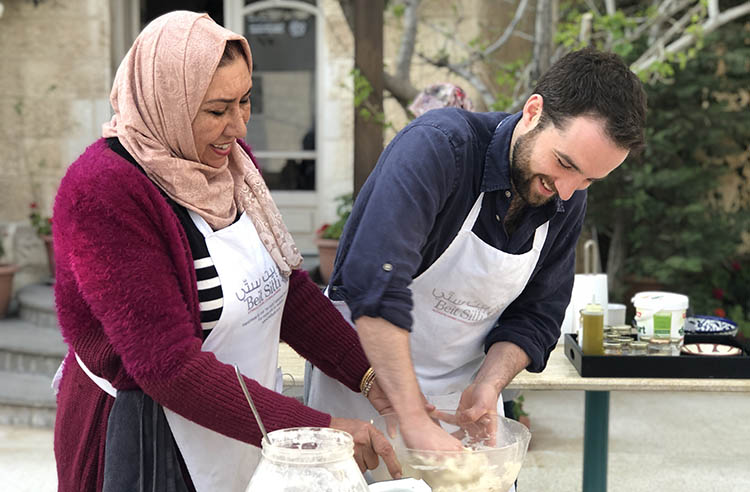
About a 20-minute drive from Amman is the Iraq Al Amir Women’s Cooperative Society. In addition to hands-on cooking classes, they offer innovative workshops including handmade paper production, pottery, and weaving. Classes here may feel a bit informal, but it breathes authenticity. I felt as though I’d stepped inside a grandmother’s kitchen.
Bani Hamida Women’s Weaving Project employs 57 women across 13 villages with the goal of preserving local knowledge and tradition. The women weavers proudly show off their wool products, share their personal stories, and demonstrate their traditional weaving technique. Visitors can even help weave a custom carpet, rug, or basket they can then purchase to take home. The project is about an 80-minute drive from Amman and would require a private taxi. Halfway through the drive, you’ll pass through Madaba, an ancient town known for its sizable Christian population, Orthodox churches, and 6th-century mosaic map of the Holy Land.
Jordan has welcomed large numbers of Syrian refugees in recent years, and many struggle to find employment in their new home. Syrian Jasmine House in Amman not only introduces Syrian products to Jordan, but also helps Syrian women secure financial independence. Women employed here produce and sell handmade soap, handicrafts, food, and candles. They also lead soap making and crochet classes, where guests get to take home what they’ve made.
As much as I love the za’atar seasoning and Bedouin sage tea I bring back during every trip from Jordan, the shea butter, coconut, and olive oil Aleppo soap from Syrian Jasmine House is my absolute favorite souvenir. The smell is not only intoxicating, it’s a constant reminder of the resilience of the women who made it.
Trip Notes
Some women-led enterprises in Jordan are easier to reach than others. Consider hiring a driver and local guide, as some of the destinations are difficult to access by bus. Also note that most women at these social enterprises do not speak English. Unless you speak Arabic, you’ll want to have a guide with you or arrange for a translator, so that you can communicate directly with the women and fully participate in the experiences they offer.
Listen to the World Nomads Podcast - Jordan
Hear more from the author, plus traveling with kids in Jordan and why it's famous for its hospitality.
Related articles
Simple and flexible travel insurance
You can buy at home or while traveling, and claim online from anywhere in the world. With 150+ adventure activities covered and 24/7 emergency assistance.
Get a quote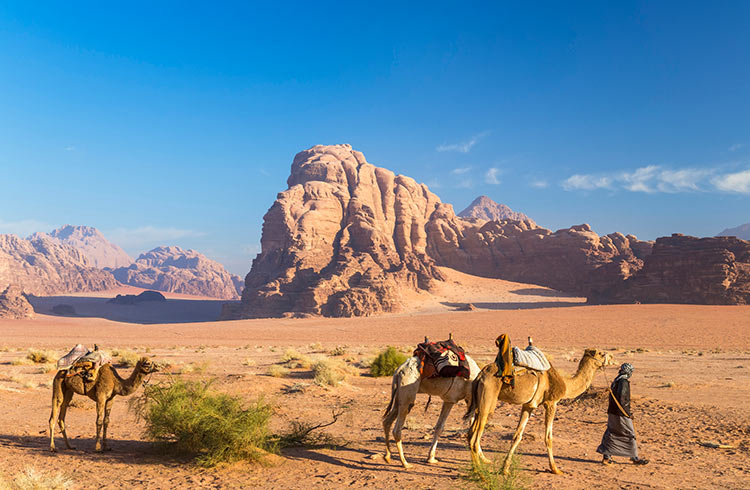
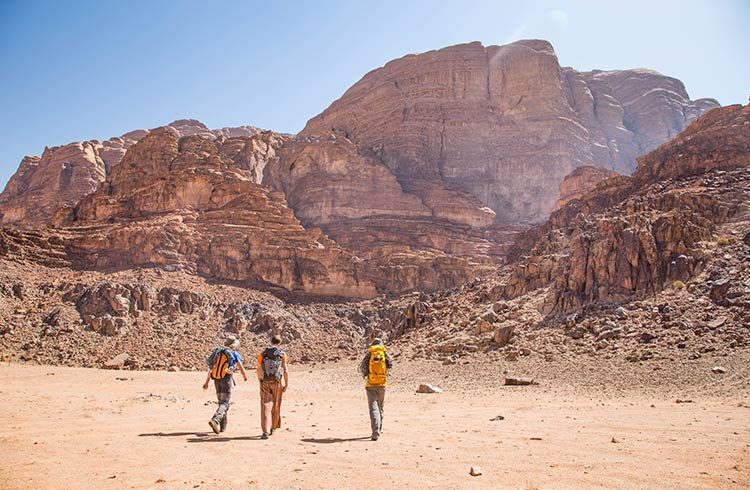
No Comments